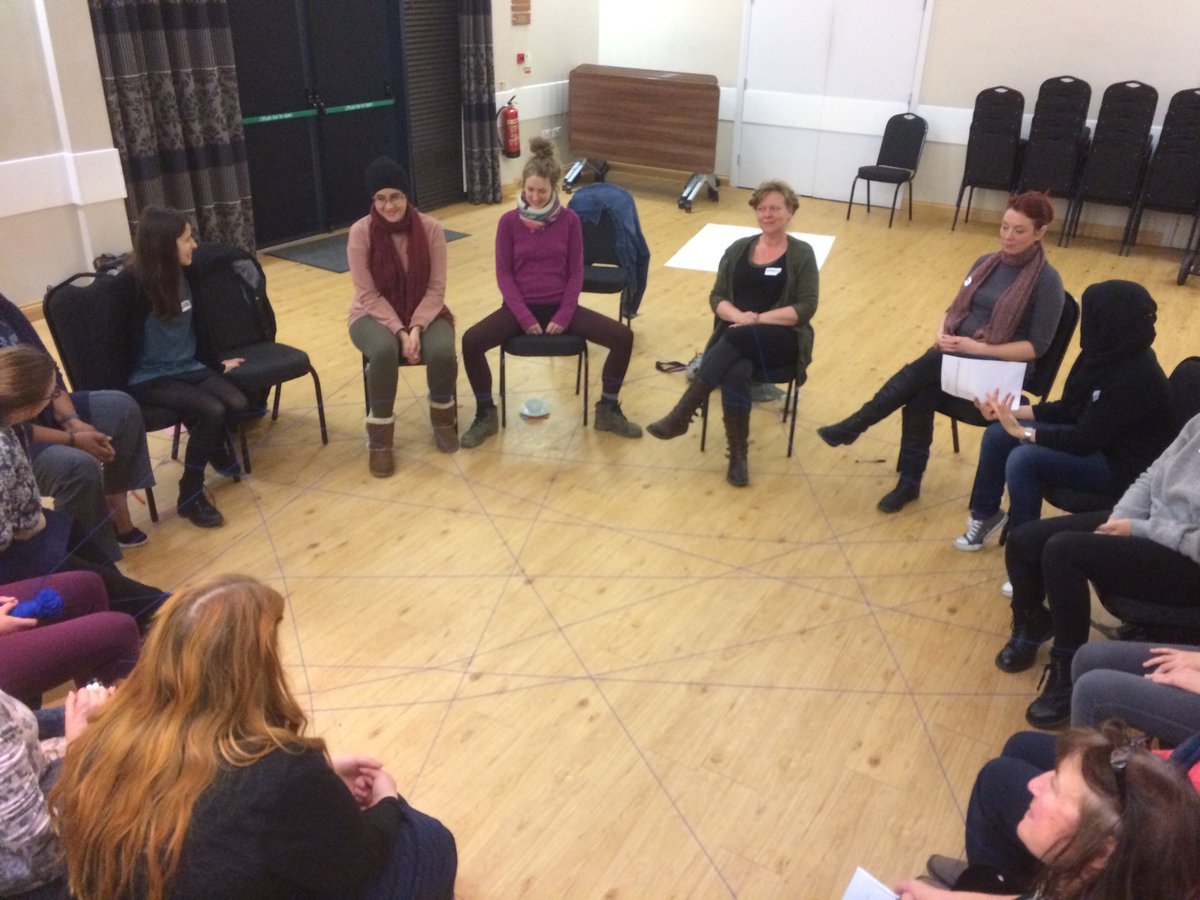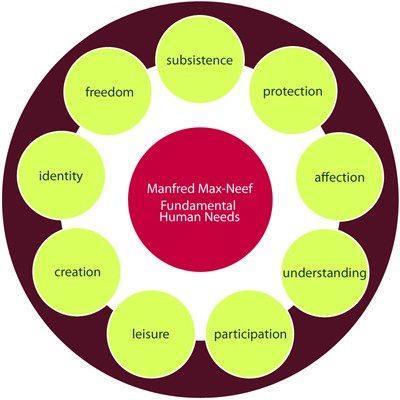At last week’s Women for Peace course, we explored the multiple story narrative. We started by sitting in four groups of four, all of us writing a fact about ourselves. Then we had to guess which fact belonged to which person. When we had more information about another person, it was easier to guess the fact about them, while others were not as easy. I chose to disclose some information about my spirit animal to show a different narrative to my identity. I was not sure how the group would react to my fact or if indeed they would take it to be a fact. Everyone was very matter of fact about it! I wish I had been able to talk about more facts about my life! I am sure there will be more opportunities for this in the coming weeks. Then we used a ball of wool to demonstrate how connected we all are, this was done through learning more about each other’s multiple narratives and connecting our feet together. 
Following this, we created a character called Anna and we gave her many different identities/labels. The idea was to show how a person can have multiple, yet contradictory facets to them, which interact together and shape who they are. This full information, therefore informs their multiple narratives. I did not quite enjoy this exercise as it was less structured and the aims of the activity were not clear from the outset. It was interesting that no one in the group thought about the ‘disabled’ label for Anna (in terms of physical or sensory impairments), and when I suggested Anna having mobility impairment, the group then considered different access barriers and became aware of a new set of dynamics and inequalities.
Returning to academia, I worked on the second draft for the ‘current issue’ of Disability and Society journal about my experiences of my recent academic trip to Armenia. While I wanted to write about the disadvantages I faced as an independent researcher during this trip, the editor was more interested in the parallels and contrasts between the Armenian and British education system and recommended some changes accordingly. Since submitting the first draft I have come across another platform where I can write more fully about my experiences of being an independent academic. Therefore, I decided to dedicate the entire short article for the ‘current issue’ to the exploration of differences and similarities observed in the two countries. I felt comfortable with this decision knowing that my firsthand experience will be dealt with in more detail in another publication.
On Thursday we were suppose to see a throat singing band from Mongolia in the Harold Assembly Rooms, called Huun Huur Tu. I was so looking forward to seeing this as we have seen some really good world music gigs in this venue. Sadly we were informed on the Thursday morning that the concert was cancelled. I was gutted. I love going to the Howard Assembly Room, it is such an incredible venue, it’s hard to believe there are often big musicals going on in the Grand Theatre across the hall! Such a contrast. I have met some wonderful new friends by going to these kind of events. Music can really bring us together, and this was demonstrated even more as part of my healing work.
The healing centre was busy on Friday and we were short of staff. I do not know where the time went as apart from a 20 minutes break, I was giving healing all afternoon. I felt confident and happy to make a difference in people’s lives, such a privilege. Last Saturday I met some students and some full healers for a few hours of healing. We listened to some healing music from across the globe followed by some time to chat and support. I felt encouraged and sustained talking to friends.
We finished watching the Human Planet series, truly an amazing and a very interesting program. It has made me think though whether if we are ever able to live ethically without exploiting or harming our planet or other living creatures including humans? I will certainly live even more mindfully. We also went to see ‘The Post’ last Sunday followed by a Q and A with Granville Williams of the Campaign for Press and Broadcasting Freedom at the Hyde Park Picture House. The film highlighted important points about ‘good’ journalism including the publication of the truth and the goals of journalism, which are pertinent to today’s media obsessed world.
I spent the rest of the weekend seeing some old friends, whom I haven’t seen for a very long time. I wish time and energy weren’t such big barriers in my life, preventing me from doing what I enjoy.
 I attended the second session of the Women for Peace course. This week, we looked at Max-Neef’s Fundamental Human Needs, which explains the importance of understanding, love and affection, rest and leisure, identity, freedom, creativity, security and protection, subsistence, and participation in equal measures. According to Max-Neef conflict occurs when one or more of these are lacking. The chart was thought provoking, and while I liked the principle behind it, I did not feel these needs apply in equal measures across cultures or ages. Sat in silence, we then made assumptions about one another in pairs. Looking into each others’ eyes, while making a number of assumptions was a very uncomfortable experience for many of us, myself included. Culturally we are not conditioned to make direct eye contact for longer than a few seconds.
I attended the second session of the Women for Peace course. This week, we looked at Max-Neef’s Fundamental Human Needs, which explains the importance of understanding, love and affection, rest and leisure, identity, freedom, creativity, security and protection, subsistence, and participation in equal measures. According to Max-Neef conflict occurs when one or more of these are lacking. The chart was thought provoking, and while I liked the principle behind it, I did not feel these needs apply in equal measures across cultures or ages. Sat in silence, we then made assumptions about one another in pairs. Looking into each others’ eyes, while making a number of assumptions was a very uncomfortable experience for many of us, myself included. Culturally we are not conditioned to make direct eye contact for longer than a few seconds.